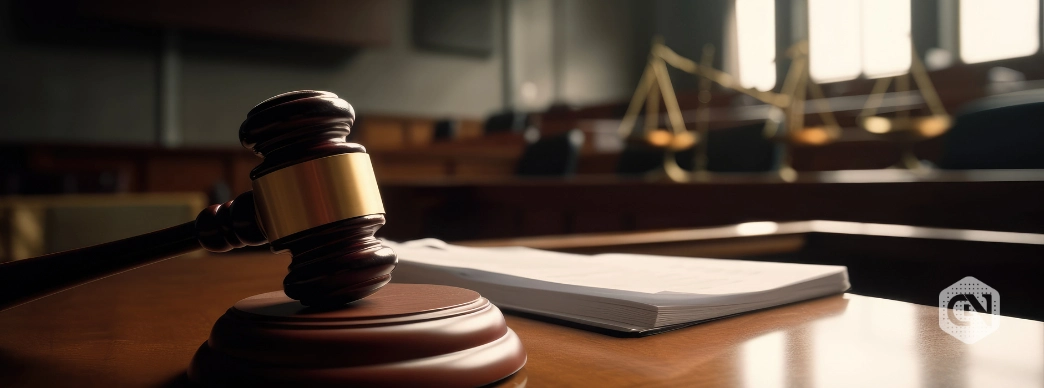Key Highlights
- A Dubai court has frozen $456 million in assets linked to the Aria group after the funds, which were part of the reserves for the TrueUSD (TUSD) stablecoin
- Crypto entrepreneur Justin Sun provided an emergency bailout to prevent TUSD from collapsing and losing its value peg to USD
- The ruling shows major concerns over the management and safety of stablecoin reserves
On November 12, Dubai’s Digital Economy Court released the order to freeze a $456 million fund linked to Justin Sun, sparking another controversy in the cryptocurrency community.
According to the court document, this staggering amount of funds is linked to a rescue effort for the TrueUSD stablecoin led by crypto entrepreneur Justin Sun, who is also the founder of Tron Blockchain.
Case Background
The ruling came from Dubai’s Digital Economy Court. This legal action is likely to safeguard funds after allegations that the stablecoin issuer, Techteryx, had its money misused.
TrueUSD, commonly known as TUSD, is a stablecoin, a cryptocurrency pegged to the U.S. dollar in a 1:1 ratio. This stability is supposed to be guaranteed by holding an equivalent amount of real USD in secure reserves.
Techteryx became the primary company in charge of TrueUSD in 2023 after previous operators encountered difficulties.
However, court documents reveal that serious issues began years earlier. Between 2020 and 2022, Techteryx allocated $456 million from the TUSD reserves into an investment known as the Aria Commodity Finance Fund.
“Between May 2021 and March 2022, FDT is said to have invested USD 468 million of the Reserves in Aria Fund in instruments called “Class C USD 3 YR 6% Coupon”. Of those sums $456 million was in fact directly remitted to Aria DMCC,” stated in a Dubai court document.
The situation took an ugly turn after the money was not placed into the approved fund as planned. Instead, the funds were directed to a different company named Aria Commodities DMCC. This Dubai-based firm is involved in trade finance, which includes financing for goods and projects.
Aria Commodities then used the money for high-risk ventures. These ventures included shipping commodities, funding mining operations, and providing loans in distant markets. A critical problem with these investments is that they are not liquid, meaning they can not be quickly converted back into cash.
When many TUSD holders requested to redeem their tokens for USD in late 2022 and early 2023, Techteryx could not access the funds. The Aria group failed to make payments and ignored requests to return the money.
Techteryx responded to these allegations, stating that this was a clear violation of the agreed-upon rules. The company had entrusted First Digital Trust, a firm based in Hong Kong, with the responsibility of overseeing the reserves.
First Digital Trust was also identified as the investment advisor. According to court filings, First Digital Trust transferred the funds to Aria Commodities without obtaining proper authorization from Techteryx.
This action created a massive shortfall of $456 million in the TUSD reserves from 2023 into early 2024.
Techteryx took an emergency measure to continue serving its regular users. It locked away 400 million TUSD tokens, which allowed smaller redemption requests to be processed even though the company faced a major financial crisis.
Justin Sun’s Emergency Rescue
After predicting the danger of TrueUSD’s collapse, Justin Sun has decided to intervene. Court records confirm that he provided emergency liquidity to support TUSD. Although he had previously distanced himself from the stablecoin, this bailout was very important.
It prevented TUSD from losing its 1:1 peg with the USD, which is known as “depegging”. This is similar to the community witnessed in TerraUSD’s fall in 2022, which also sparked turmoil in the crypto community.
The Dubai court’s order freezes assets held by Aria Commodities and related entities. The presiding judge, Michael Black, stated that Techteryx provided compelling evidence of a breach of trust. He explained that the funds are held under a “constructive trust.”
The Dubai court noted that Aria failed to provide clear information on where the money was used or what assets it purchased.
